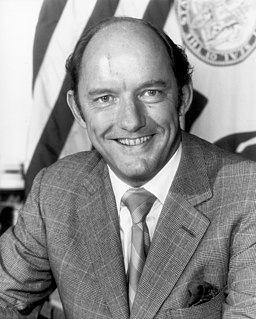A Quote by Adam Smith
The property which every man has in his own labour, as it is the original foundation of all other property, so it is the most sacred and inviolable.
Related Quotes
Conscience is the most sacred of all property; other property depending in part on positive law, the exercise of that being a natural and unalienable right. To guard a man's house as his castle, to pay public and enforce private debts with the most exact faith, can give no title to invade a man's conscience, which is more sacred than his castle, or to withhold from it that debt of protection for which the public faith is pledged by the very nature and original conditions of the social pact.
..every Man has a Property in his own Person. This no Body has any Right to but himself. The Labour of his Body, and the Work of his Hands, we may say, are properly his. .... The great and chief end therefore, of Mens uniting into Commonwealths, and putting themselves under Government, is the Preservation of their Property.
It is not the right of property which is protected, but the right to property. Property, per se, has no rights; but the individual - the man - has three great rights, equally sacred from arbitrary interference: the right to his life, the right to his liberty, the right to his property The three rights are so bound together as to be essentially one right. To give a man his life but to deny him his liberty, is to take from him all that makes his life worth living. To give him his liberty but take from him the property which is the fruit and badge of his liberty is to still leave him a slave.
A relation is formed betwixt every man and the fruits of his own labour, the very thing we call property, which he himself is sensible of, and of which every other is equally sensible. Yours and mine are terms in all languages, familiar among savages, and understood even by children. This is a fact, which every human creature can testify.
It is evident that the right of acquiring and possessing property, and having it protected, is one of the natural, inherent, and unalienable rights of man. Men have a sense of property: Property is necessary to their subsistence, and correspondent to their natural wants and desires; its security was one of the objects, that induced them to unite in society. No man would become a member of a community, in which he could not enjoy the fruits of his honest labour and industry.
In the latter sense, a man has a property in his opinions and the free communication of them. He has a property of peculiar value in his religious opinions, and in the profession and practice dictated by them. He has an equal property in the free use of his faculties and free choice of the objects on which to employ them. In a word, as a man is said to have a right to his property, he may be equally said to have a property in his rights.
The only proper, moral purpose of a government is to protect man's rights, which means: to protect him from physical violence - to protect his right to his own life, to his own liberty, to his own property and to the pursuit of his own happiness. Without property rights, no other rights are possible.
Thirdly, the supreme power cannot take from any man any part of his property without his own consent: for the preservation of property being the end of government, and that for which men enter into society, it necessarily supposes and requires, that the people should have property, without which they must be supposed to lose that, by entering into society, which was the end for which they entered into it; too gross an absurdity for any man to own.
We hold that the ownership of private property is the right and privilege of every American citizen and is one of the foundation stones upon which this nation and its free enterprise system has been built and has prospered. We feel that private property rights and human rights are inseparable and indivisible. Only in those nations that guarantee the right of ownership of private property as basic and sacred under their law is there any recognition of human rights.
By Liberty I understand the Power which every Man has over his own Actions, and his Right to enjoy the Fruits of his Labour, Art, and Industry, as far as by it he hurts not the Society, or any Members of it, by taking from any Member, or by hindering him from enjoying what he himself enjoys. The Fruits of a Man's honest Industry are the just Rewards of it, ascertained to him by natural and eternal Equity, as is his Title to use them in the Manner which he thinks fit: And thus, with the above Limitations, every Man is sole Lord and Arbitrer of his own private Actions and Property.
Ownership by delegation is a contradiction in terms. When men say, for instance (by a false metaphor), that each member of the public should feel himself an owner of public property-such as a Town Park-and should therefore respect it as his own, they are saying something which all our experience proves to be completely false. No man feels of public property that it is his own; no man will treat it with the care of the affection of a thing which is his own.

































